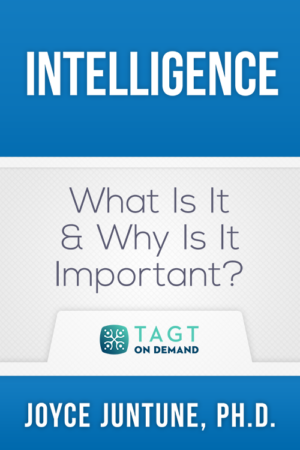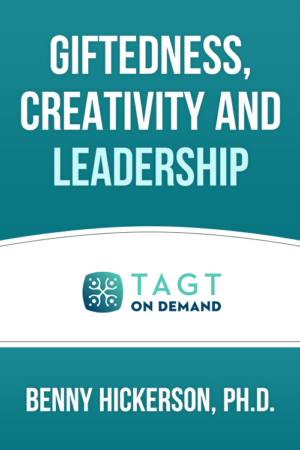Description
In “Idealism and Depression,” Lori Comallie-Caplan discusses the serious issue of depression in gifted students. Many children experience depression, but what are the unique struggles observed in gifted adolescents? Asynchronous development, social isolation, and existential depression are just a few of the risk factors. Although gifted students are vulnerable to depression, due to their high expectations and idealism, you will find that their strengths can be tapped to help them move toward hope and optimism.
- Understand the unique reasons that gifted students struggle with depression
- Discover how existential depression affects gifted adolescents and its relation to Dabrowski’s Developmental Levels
- Identify the warning signs of depression in gifted students
- Learn four strategies for dealing with depression






raul – MERCEDES ISD (verified owner) –
it was very informative.
Marilin – GRAND PRAIRIE ISD (verified owner) –
great
Adriana – EDINBURG CISD (verified owner) –
great information
Mayra – UNITED ISD (verified owner) –
excellent
Elizabeth – MCALLEN ISD (verified owner) –
Great presentation!
Yessica – GRAND PRAIRIE ISD (verified owner) –
Great!
Victor – GRAND PRAIRIE ISD (verified owner) –
The course was very informing.
Melissa – UNITED ISD (verified owner) –
informative
Tawuana – PROSPER ISD (verified owner) –
The training was good and I feel it would be a great training for others that have not already taking many trainings on the subject. For me, there wasn’t a lot of new information but it was a great review and reemphasized critical information to know and consider.
Kimberly – GRAND PRAIRIE ISD (verified owner) –
The course is great but each year we get the same videos. It would be nice to have updated ones.
Sarah – BOERNE ISD (verified owner) –
Very informative course!
Cara – MIDWAY ISD – WOODWAY (verified owner) –
Great session with valuable information, especially for teachers who may not have experience with depression or working with students with depression.
Rachael – BOERNE ISD (verified owner) –
The course was very informative. I like to read the notes as I watch the videos but some of them were too small to view.
Shelley – DANVILLE LOCAL (verified owner) –
I think the course would be beneficial to others who have not taken gifted college courses on this subject. I felt like the speaker was speaking a little fast and this course could have benefitted from closed captioning.
Jessica – GRAND PRAIRIE ISD (verified owner) –
Great for both my classroom and my own personal children.
Erin – CARROLLTON-FARMERS BRANCH ISD (verified owner) –
Very helpful and presentation organized well for us to make notes and understand how to help students best.
Rebecca – CARROLLTON-FARMERS BRANCH ISD (verified owner) –
I thought it was good and helpful.
Tracy – HPS – HOUSTON SOUTH/WEST (verified owner) –
I enjoyed taking the course, and I learned new ways to help my gifted and talented students deal with depression.
Lena – GALVESTON ISD (verified owner) –
This was a reality check. There were many topics that I have experienced but did not know how to handle. Going forward i will be better equipped with the tools to recognize and assist students.
Maria – GRAND PRAIRIE ISD (verified owner) –
Great
Shriya – CARROLLTON-FARMERS BRANCH ISD (verified owner) –
engaging and informative
Shyamali – CARROLLTON-FARMERS BRANCH ISD (verified owner) –
This course is very helpful.
Robert – CARROLLTON-FARMERS BRANCH ISD (verified owner) –
Interesting information on dealing with gifted students and depression.
Elizabeth – GALVESTON ISD (verified owner) –
It is important to understand the aspects of gifted and talented students that may be different from other students.